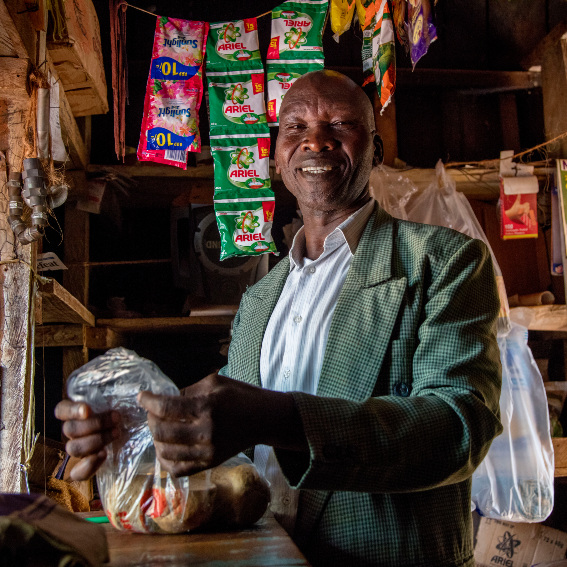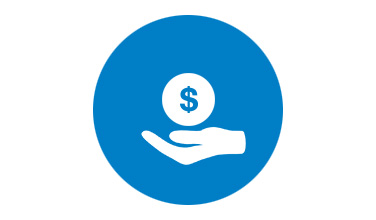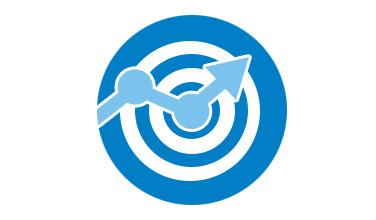
‘Helping us help ourselves’: Josephat
Josephat Mwaniki Njeru had run his own business for nearly four years, but it was becoming clear he needed a little bit of help.
It didn’t matter that the organisation offering it, Hand in Hand International, included nearly 20 local women and not a single other man. In fact, he recognised the challenges women faced in finding jobs in Kenya’s Kirinyaga County, and he saw no downside in learning from their tenacity.
With aid and support from Hand in Hand’s Self-Help Group, Josephat has gotten the boost he needs. His shop, which sells sugar, rice and flour among several other goods, is no longer struggling. After one expansion, he already has eyes on making it even bigger.
“There would be no difference if it was just a men’s group,” Josephat said. “However, from what I see, these women have been involved in many more activities than men. Men don’t always like group formations, but right from when I was a child, I liked group activities. I like being involved in doing something.”
Kirinyaga County, Kenya
A Decision Made
From early on, Josephat was faced with two choices: he could go into farming, like the majority of residents, or he could open a business. That question was answered when he realised the land he owned was not going to help him provide for his family.
Small-scale farming is prevalent in the region and most farmers grow coffee, tea, rice and various fruits and vegetables. None of those crops, though, would help Josephat earn enough to provide for his wife, let alone four children or three grandchildren.
“I have three-quarters of an acre of land,” Josephat said. “That is not sufficient, so for me, I don’t have much option other than business. It’s the main thing — it’s where I eat from. I do everything from the business. I love my business.”
Taking A Risk
Josephat had only KES 1,700 (US $17) to his name when he decided to open his shop, and although he was able to obtain a loan for KES 15,000 (US $150), he had been struggling to pay it back. Whatever profits he earned went immediately into feeding his family.
That’s when he and three other men were introduced to Hand in Hand, which offered them the opportunity to learn from local trainers about responsible shopkeeping. Josephat loved what he heard and quickly bought in to a group of 19 women.
“Even if I am the only man in the group, I feel comfortable because we are doing things together and when we carry out activities, we do them together,” Josephat said.
Those activities included lessons on the principles of table banking, responsible inventory and financial management, all of which Josephat knew he needed. Soon, his income started to increase, allowing him to generate more than KES 7,000 (US $70) in profit a week.
The original loan has long been paid off, as has a second, and he’s trying to secure yet another in order to help his business continue to grow.

“Before I joined Hand in Hand, I did not know how to organise myself, but after we started to learn some lessons, I asked many questions,” Josephat said. “Where I don’t understand, I ask for help. Where my business is not doing well, I ask for help. I try to put in practice what the teacher had recommended, so I see my business has improved from what it was before.”
Paying It Off
Although Josephat takes care to reinvest much of his profits into his business, his family has benefitted greatly from his larger earnings. His four children, who range in age from 26 to 33, can live slightly more comfortably because Josephat wants to pay for his grandchildren’s school fees.
“What I can say? These donors, they really help,” Josephat said. “When people come together in groups, they benefit immensely. Isn’t that good? What we lack while in our homes is backing and ground for exposure to push us so that whatever economical activities one is involved can be boosted and grow so that one can depend on it sustainably.
“It will improve your life standard. I have said several times that funds are the main problem. We have a lot of duties: you want to eat, you have children at school, hospital bills and other things. So, what happens when you look back at your backyard and you see that you don’t have money? Donors are really helping us help ourselves.”
The group has also helped Josephat’s family in another way. His wife has begun working at a tree nursery that was also set up with the assistance of the Self-Help Group.

Finally repaid a loan that had long been outstanding
Learned how to do an inventory of his stock

Developing plans to continue expanding business
Next case study: Meet Gloria, the former refugee growing crops – and profits
